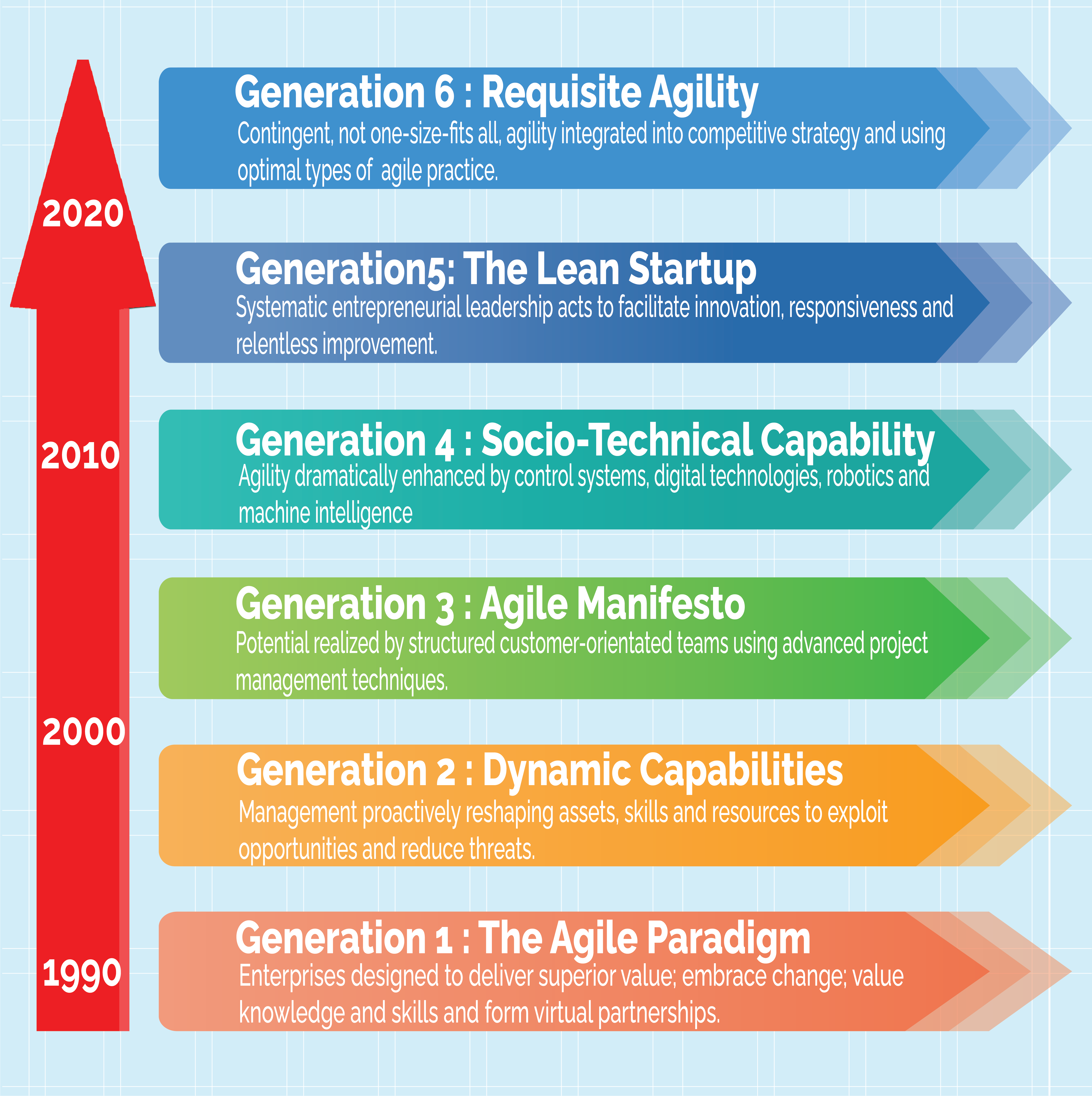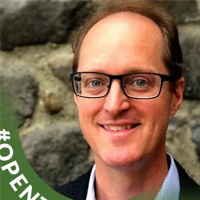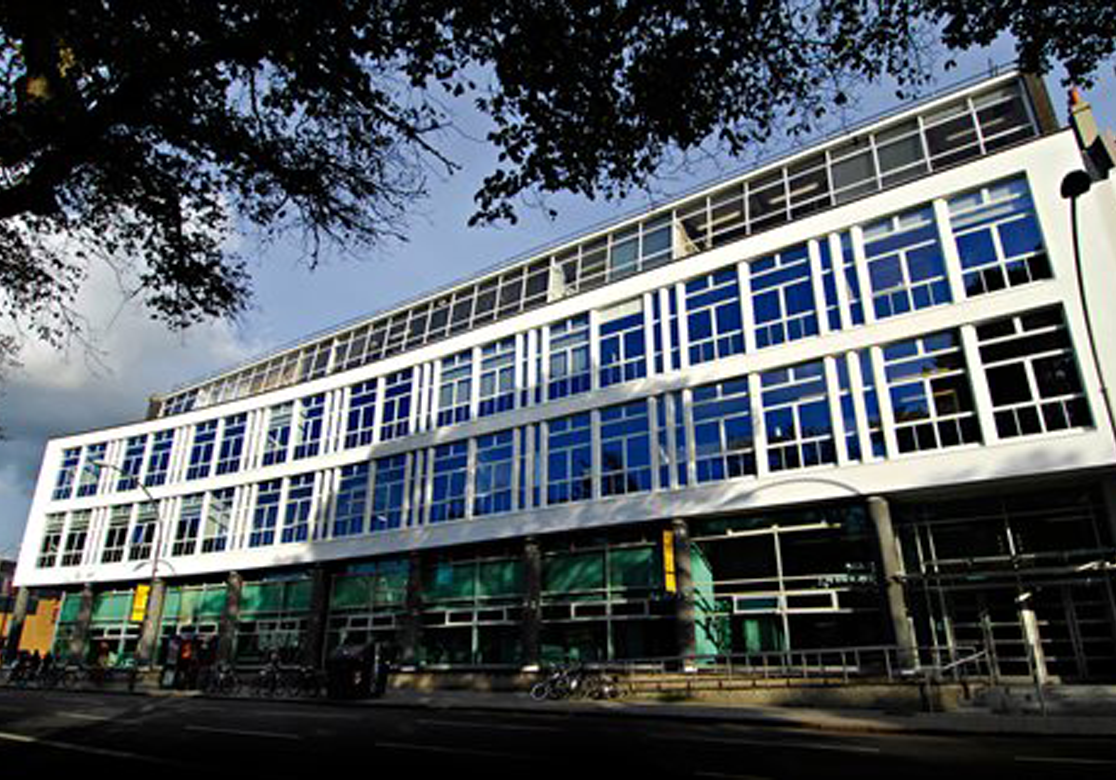Gain Early Access to the new
Implementing Requisite Agility Workshop for Change Agents
20 years of ground-breaking research by the
University of Brighton has provided key insights into the challenges of developing an effectively agile organisation. The research shows shows that agility needs to be ‘requisite’ rather than ‘one-size-fits all’.
Requisite Agility has profound implications for
Change Agents. These will be examined during the new two-day Implementing Requisite Agility Workshop. Limited places are available. You can become a founding member of the Requisite Agility movement, acquire the knowledge and skills to facilitate fit-for-purpose agility and co-create crucial conversations to accelerate benefits to profit, people and planet.

Mastering And Championing Agility-Oriented Organizational Development
- Are you responsible for helping organisations to become agile?
- Do you find current methods for promoting enterprise agility are inadequate?
- Have you found that parts of your organisation need to be agile in different ways?
- Do you believe that systematic research should underpin change?
If your answer to these four questions is ‘yes’ then come and explore the potential of Requisite Agility, the 6th generation of agility-oriented organisation development models.
Six Generations Agility-Orientated Organisation Development
developed the construct of the Agile Paradigm. Defining it as a pathway for developing an organisation’s capacity to meet the needs of micro-market segments better than rivals.
found that only enterprises with deep Dynamic Capabilities had the leadership, culture and resources to be successfully agile.
defined the Agile Manifesto that dynamically integrated planning and doing within efficient project groups.
was developed by NATO. It demonstrated that technological innovations can profoundly increase systemic agility, thereby defining agility as being a Socio-Technical Capability.
enabled processes for Enterprise-Wide Agility to be codified including the influential and inspirational ‘Lean Start-up’ model.
has developed the concept of Requisite Agility that is radically different from previous approaches as it is contingent (depending on circumstances) and not a one-size-fits-all model.

Who Will Deliver The Workshop?

The workshop director is Dr David L Francis who was the Team Leader of the first academic research study to identify the importance of Requisite Agility more than 20 years ago. Dr Francis has continued to investigate the managerial challenges of becoming effectively agile advising organisations as diverse as a silicon valley technology leader, one of the largest food companies in the world, a UN Agency sponsoring projects to help impoverished communities and an order of the Roman Catholic Church.
Dr Francis is a member of CENTRIM (the Centre for research into Change Management, Entrepreneurship and Innovation) within the School for Business and Law, University of Brighton. CENTRIM investigated how managers can transform their organisation to become effectively agile for more than two decades. Currently Dr Francis is a Facilitator of the UK Government’s Help-to-Grow programme which is tasked with the development of agility in
more than 30,000 smaller enterprises in the UK.
The Workshop Faculty Includes:
Benjamin P. Taylor
Sunil Prashara
Scott Ambler
Geordie Keitt
Eve Simon
The members of the workshop faculty are leading change agents who have worked internationally on agility development with many organisations.
Register today for the price of £990
Why Is Requisite Agility Important?
The majority of CEOs have a top-five priority to-do which is to ‘drive my organisation to become productively agile and, therefore, future-ready in a world experiencing revolutionary change’. So, the big question for CEOs to answer is ‘how are we to be agile in ways that are functional, not dysfunctional?’
Agile Dysfunction is to (i) have too much or too little agility; (ii) adopt a dysfunctional type of agility; (iii) be agile in the wrong places; (iv) prioritise short-term agility, without developing sufficient resilience to cope with future challenges and (v) fail to acquire the foundational capabilities required to underpin organisational agility.
Despite these hazards an increasing number of companies and not-for-profit organisations have no option but to search for ways to become productively agile in ways that are fit-for-purpose in a world experiencing revolutionary change.
Requisite Agility has been developed from 20 years of research into how companies and not-for-profit organisations succeed in adopting agile mindsets, skillsets and processes while achieving efficiency, effectiveness, reliability, risk-management, quality, responsibility and organisational coherence. There is no one-size-fits-all solution. Adopting Requisite Agility enables an organisation to identify needs in depth, select the optimal agile management models and integrate agility within other managerial requirements.
Explore Beautiful Venues
The Schedule
Scaling Requisite Agility
Learn how to move beyond the constraints of current forms of agile thinking. How to scale agility based on how ‘requisite’ is understood for each function, team and realm.
Ecosystem Thinking
Through this emerging worldview of ecosystem thinking, every human enterprise must catalyze itself as an ecosystem (within a broader ecosystem) that embodies foresight, requisite agility, sustainability, robustness, resilience and humanity while embracing the edge.
Transdisciplinary Learning
This is the exploration of a relevant concept, issue, or problem that integrates the perspectives of multiple disciplines in order to connect new knowledge and deeper understanding to real-life experiences.
Agenda
Registration, Coffee and Breakfast Snack.
Introduction to the Workshop and Overview of the Conceptual Development of Requisite Agility.
Formation of Co-Consulting Trios: Definition of Roles.
Contracting for Confidentiality and Definitions of participants’ Units of Investigation.
Coffee Break
Briefing for Step One: Using the Nine Lenses Model (Step 1) in Trios with help from Facilitators.
Hands-On Case Work in Trios on Step One.
Lunch and Networking.
Hands-On Case Work in Trios on Step Two.
Afternoon Refreshment Break.
Hands-On Case Work in Trios on Step Three.
Coffee and Breakfast Snack
Briefing for Step Four: Concept of an Enterprise Agility Ambition: How it Differs from Strategic Planning
Hands-On Case Work in Trios on Step Four.
Coffee Break
Briefing for Step Five: Scoping: Identifying where Agility is needed, how important it is, and how radical it needs to be.
Hands-On Case Work in Trios on Step Five.
Reports from Trios: Learning Insights for Change Agents. Importance of sub-unit agility development.
Lunch and Networking.
Briefing for Step Six: The Eight Types of Agility
Hands-On Case Work in Trios on Step Five.
Reports from Trios: Learning Insights for Change Agents. Importance of type-specific agility development initiatives.
Refreshment Break
Overview of Step Seven and distinctive Challenges of Requisite Agility Based Organisation Development.
Register For The Workshop
What Will It Cost To Participate?
The fee for attending the two-day Requisite Agility Workshop For Change Agents is £990. This includes pre-work, attendance at all sessions, learning materials, refreshments and lunches and an optional 15 minute personal coaching session with one of the Faculty Team in the month following the workshop.
Why Participate?
Senior leaders in all organisations must decide whether their enterprise needs to develop functional (not dysfunctional) agility and, if the answer is ‘yes’, they must have someone draw up road-maps for agility-oriented organisational development. Skilled and knowledgeable internal or external Change Agents play a key role.
£990
-
Breakfast Snacks, Lunch and Refreshments provided.
-
Detailed Step-by-Step process for facilitating Requisite Agility.
-
Hands-on practice with live cases.
-
Research-Based insights into the realities of managing agile enterprises.
-
Use a newly developed typology of Agile Types to give precision to interventions.
-
Comprehensive documentation.
-
Understand required Change Agent competencies.
Get Direction to the Event
-
Venue
SULLIVAN & STANLEY
-
Address
Birrane House, 2-4 Southwark Street, London SE11TQ
- Venue Info







